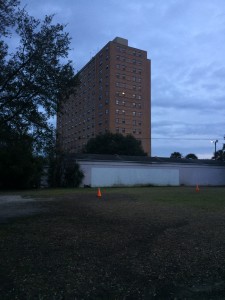 Remember the character NoNo from the 2005 fable Our Iceberg Is Melting: Changing and Succeeding Under Any Conditions by John Kotter and Holger Rathgeber?
Remember the character NoNo from the 2005 fable Our Iceberg Is Melting: Changing and Succeeding Under Any Conditions by John Kotter and Holger Rathgeber?
NoNo serves as his penguin colony’s community weather forecaster. He’s negative about everything and everyone one he meets. He personifies resistance to change.
With the recent frigid temperatures across North America, NoNo is probably rejoicing, even more convinced that all is well with his iceberg.
That is, if NoNo is still up North. Based on some recent experiences, I think he may be wintering in Charleston, SC, where I’ve been living for the past year.
Charleston is the “No, but.” preservation society. By contrast, the San Francisco Bay area, my former home, is the “Yes, and…” land of possibilities. (And yes, I’m still experiencing culture shock.)
Other geographies besides San Francisco have discovered the power of “Yes, and…” thinking and acting. Organizations and individuals certainly say “yes, and …” as well.
“Yes, and…”, which comes from improv theatre, is a powerful tool for our VUCA (volatile, uncertain, complex and ambiguous) world. That’s because the dynamic, complex, unpredictable and often chaotic conditions favor those who are present in the moment and react to the situation in real-time, rather than those who follow or even read a tight script.
When you say “yes, and…” you are listening for others to provide you with offers you can respond to. Your “yes, and…” lets you be more open to others’ perspectives, which allows you to be more receptive to more possibilities.
For more about this way of thinking and acting, check out this new book, Yes, And: How Improvisation Reverses “No, But” Thinking and Improves Creativity and Collaboration–Lessons from The Second City by Kelly Leonard and Tom Yorton. I’ve not read it, but I’ve ordered it online.
Yes and…I didn’t bother looking in local bookstores for it, even though Charleston has an impressive improv theatre. Plus, Stephen Colbert who grew up here is an alum of the famous The Second City improv troop and Northwestern University.
Now granted, Charleston has a very rich history worthy of preservation. So the “No, but.” attitude that helps avoid danger may come more naturally to many. (For more about this, see Be a workhorse–target your messages to pain and pleasure.)
Yet it feels as if some residents, especially native Charlestonians, are so concerned about protecting the past that they lose perspective around the present and the potential for the future.
For example, many local merchants and residents are protesting a proposed redevelopment of the Sergeant Jasper apartment site. (The Charleston City Paper summarizes the situation.)
While the 1949, privately-owned building—all ready for demolition—is an eyesore, it is a familiar landmark.
Some say this nondescript red brick structure that soars above everything else in the area is still a better alternative than the proposal for better-designed new housing with commercial space for a grocery store.
Others just say “no.”
Of the dozen or so merchants and residents I’ve talked with, none can’t—or won’t—articulate to me their preferences. They just describe the awful things about the proposed development and insist it not go forward.
When I ask “What would you like to see happen to the space?,” they look at me with a puzzled look on their face and shrug.
As for me, I’d love to be able to walk to a grocery store, especially to buy milk. The native Charlestonians may be okay spending $4.99 for a half-gallon of milk at Burbage’s Self Service Grocery Store, but to me the convenience isn’t worth paying a premium of twice the price of what the regular grocery stores charge.
So here’s to my saying “Yes, and…” at other places around town and elsewhere.
Where do you fall on the “Yes, and…” and “No, but.” spectrum?

0 Comments